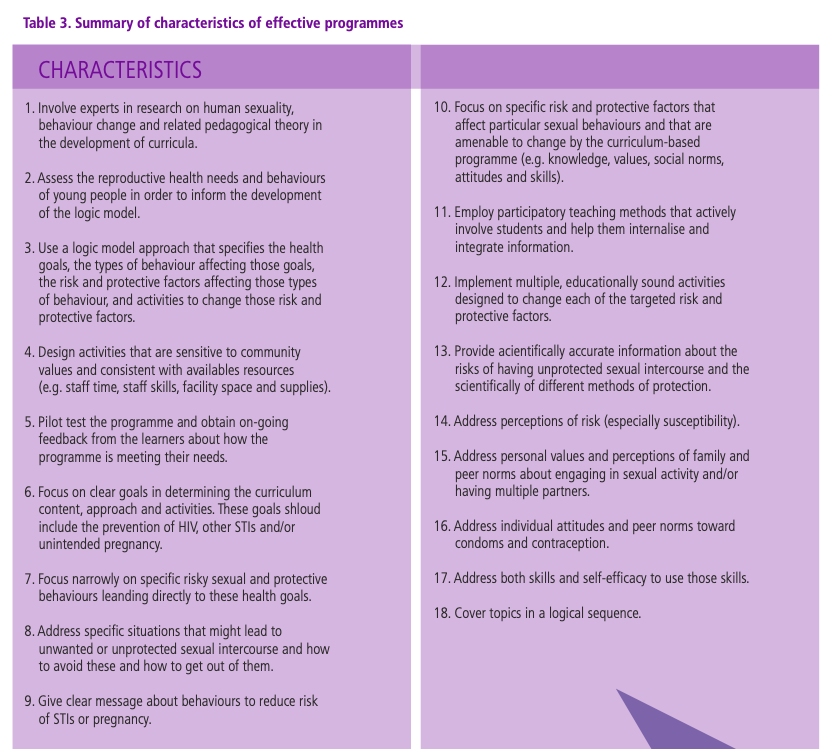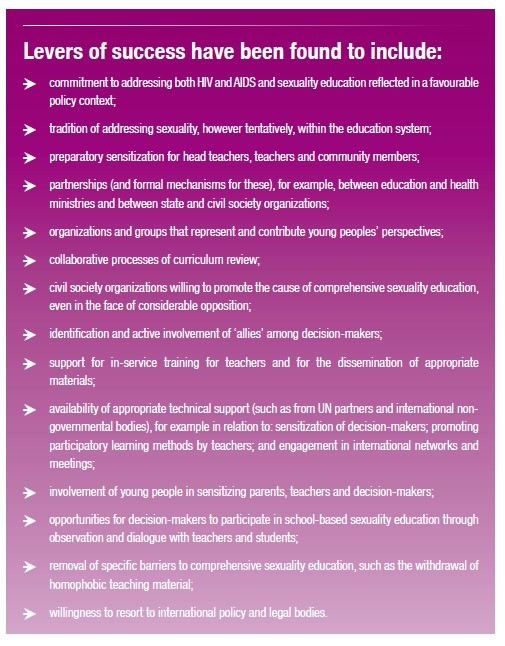Research finds consistently that the most effective CSE programmes have the following characteristics:
- They address more than one health-related outcome. Programmes addressing both pregnancy prevention and STI/HIV prevention are more effective than either on their own at increasing contraceptive and condom use.
- They use an explicit rights-based approach. In the shorter term, this approach leads to increased knowledge and positive attitudes, including about one’s rights within a sexual relationship. This approach also leads to increased communication with parents and greater self- efficacy to manage risky situations, both of which are connected to a delayed onset of first intercourse and more effective, consistent condom and contraceptive use.
- They address gender scripting and stereotypes. Programmes that include transformative content and teaching methods to support students in questioning social and cultural norms related to gender will help foster more gender equitable attitudes (Haberland and Rogow, 2015).
- They are delivered with implementation fidelity. When research-based CSE programmes are delivered as per the original design, content or delivery approaches they are much more likely to achieve their goals and objectives than programmes that do not. Minor adjustments intended to better reflect community diversity and cultural references, are permissible. Making major adaptations, such as reducing the number or length of sessions, making the session less participatory, eliminating key messages or skills, removing topics, changing the theoretical approach, or using staff or volunteers who are not adequately trained or qualified, can all have a negative impact on the programme outcomes.


(Source: UNESCO, 2010 – Levers of Success: Case Studies of National Sexuality Education Programmes).
The evidence base for comprehensive sexuality education
Research repeatedly demonstrates that curriculum-based CSE contributes to:
• Delayed sexual initiation
• Decreased frequency in sexual intercourse
• Decreased number of sexual partners
• Reduced risk taking
• Increased and more consistent condom use, and
• Increased and more consistent use of contraceptive methods. (ITGSE, p. 28)
Sexuality education is most impactful when school-based programmes are complemented with community elements, including condom distribution; providing training for health providers to deliver youth-friendly services; and involving parents and teachers (Chandra-Mouli et al., 2015; Fonner et al., 2014; UNESCO, 2015a). Multicomponent programmes, especially those that link school-based sexuality education with non-school-based, youth-friendly health services, are particularly important for reaching marginalized young people, including those who are not in school (UNESCO, 2016c).
